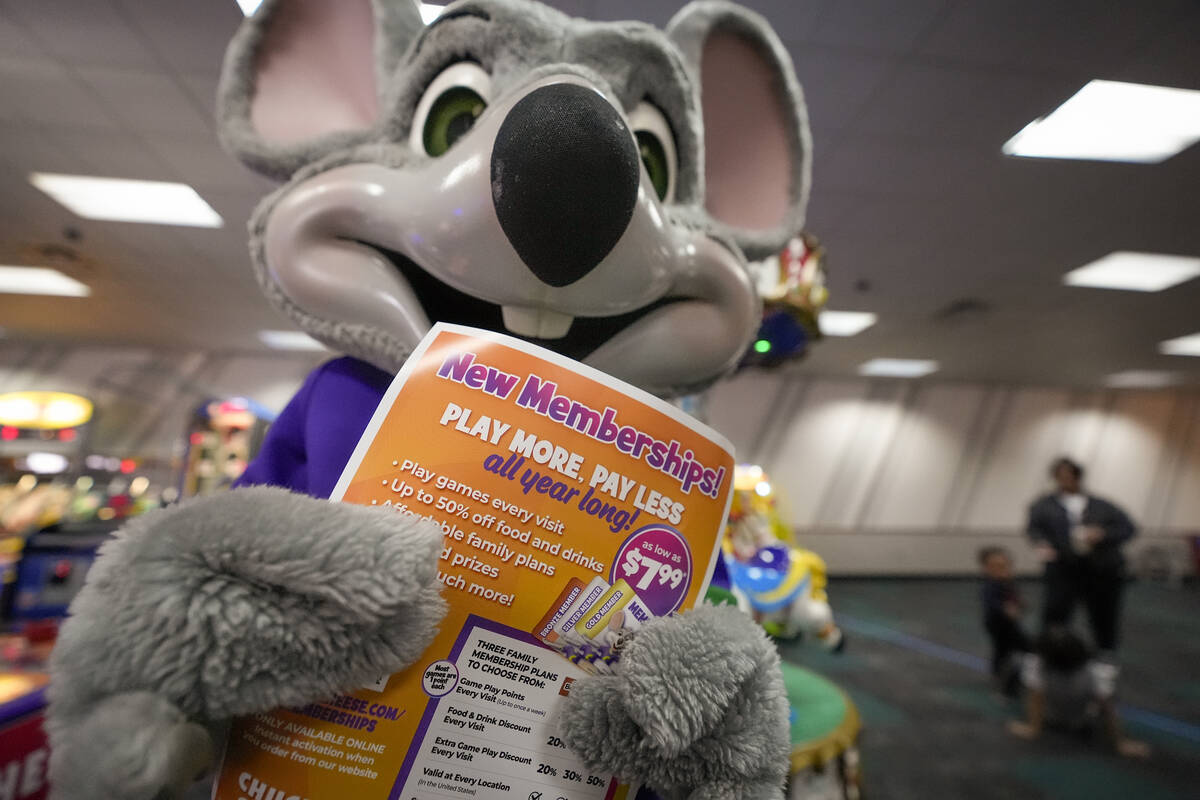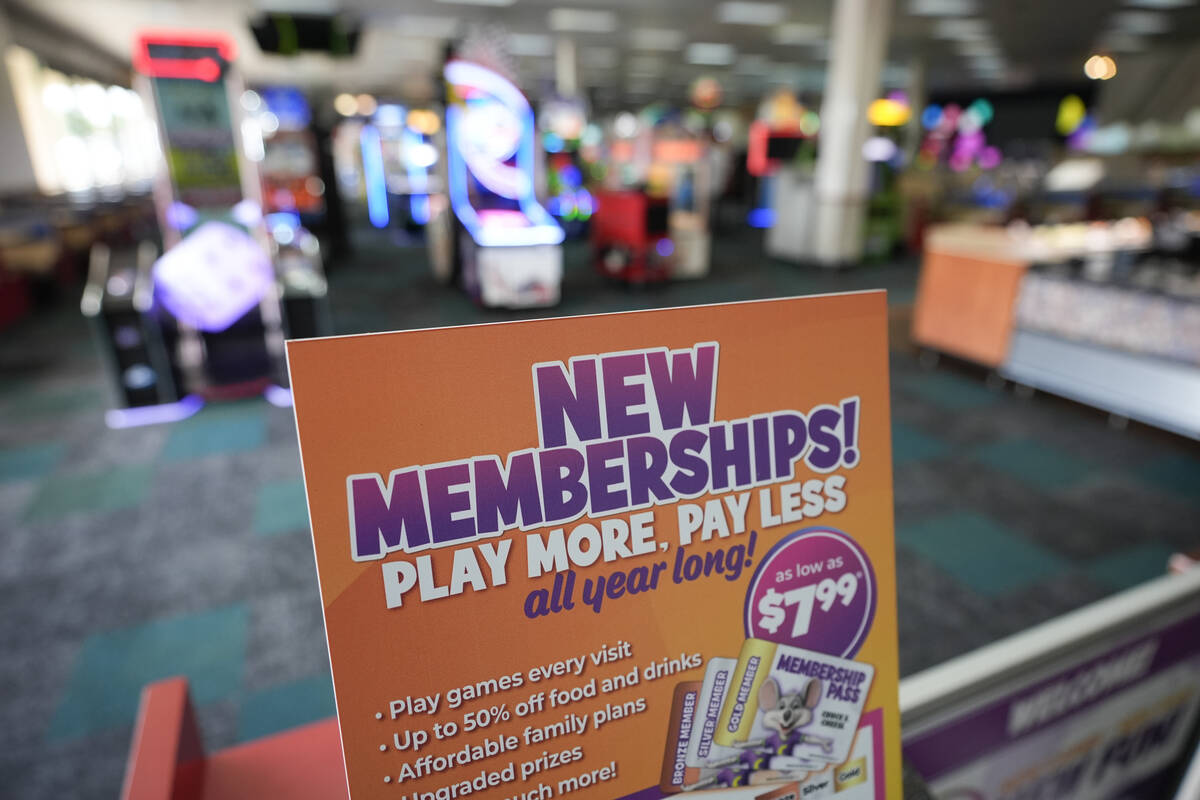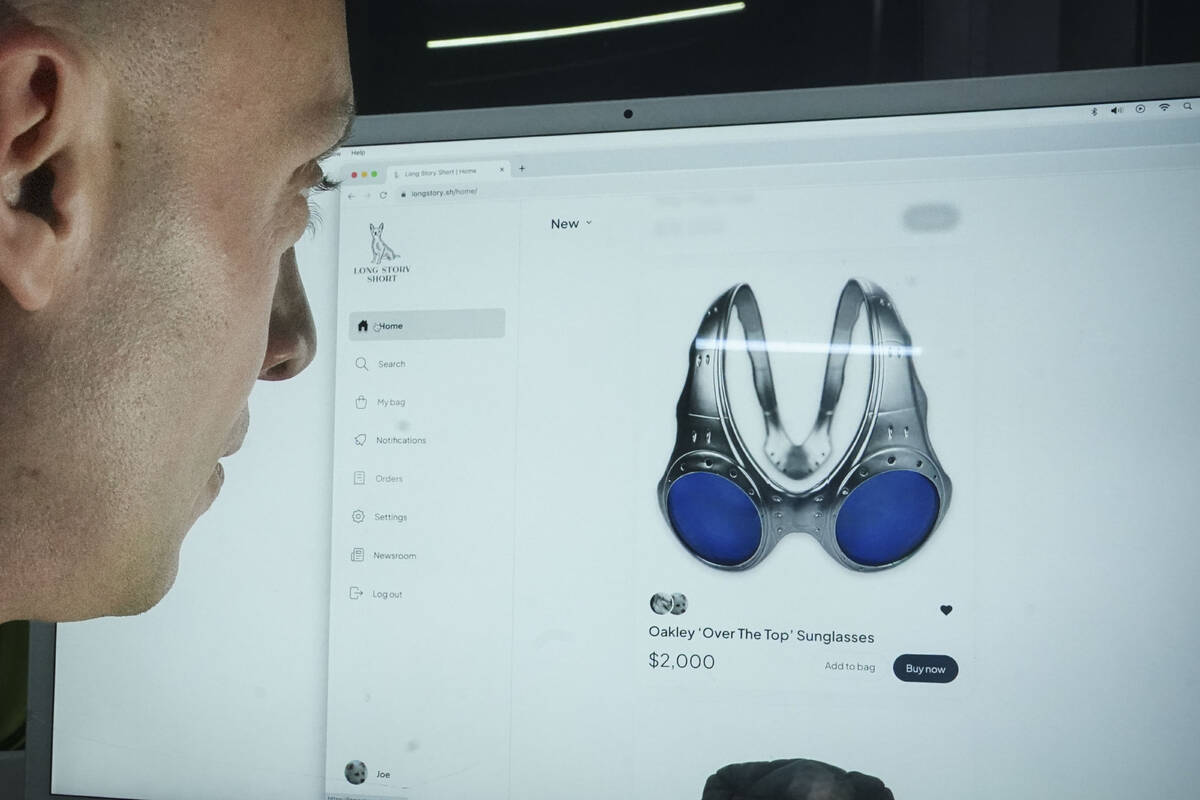Want to feel special? Stores, restaurants with paid memberships are betting on it
NEW YORK — How much does it cost to feel special?
At Chuck E- Cheese, the family entertainment and pizza chain, the price is $7.99, $11.99 or $29.99 per month. At the other end of the spectrum, the founder of a shopping app called Long Story Short wants to charge members $1,000 monthly for anonymous access to such hard-to-get goods as a rare Keith Haring artwork.
Paid loyalty programs are all the rage in the restaurant and retail worlds. Looking for reliable sales in an unpredictable spending environment, more companies have extended their points-based loyalty tiers to making their most dependable customers feel valued for an up-front fee.
Consumers bombarded with membership offers are promised perks such as free deliveries and first dibs on new launches, but also in some cases the right to jump ahead of non-members on reservation lists and in customer service queues.
It’s a method rooted in both the business case for treating big spenders well - it’s cheaper for businesses to keep an existing customer than to find a new one — and in the fundamental human need for belonging, said Valerie Folkes, a consumer psychologist and marketing professor emerita at the University of Southern California’s Marshall School of Business.
“If they’re seated earlier than other people or there’s a special line for them at the registers, then they feel they’re special,” Folkes said. “It makes them feel that there’s a stronger link or a bond between themselves and the company.”
In retailing, Target Corp. is taking on the Amazon Prime juggernaut with a paid loyalty program that will cost $49 a year between April 7 and May 18, and $99 annually thereafter. Members of Target Circle 360 can expect free two-day shipping and free deliveries of orders over $35 in as little as an hour, the company announced last week.
Target executives said the 100 million-plus customers enrolled in the company’s free Target Circle loyalty plan already spend five times more than non-members. CEO Brian Cornell told The Associated Press the hope is the new paid membership “builds more relevance, more stickiness.”
Chuck E. Cheese piloted a paid program with bronze, silver and gold tiers in Santee, California in December and launched it in the rest of the San Diego area in February. The program offers discounts on food and drinks and freebies like cotton candy. Members also receive free “play points,” which allow customers to play arcade games and get snacks, and e-tickets, which are typically earned from playing arcade games and redeemed for prizes. The tickets and points are automatically loaded on to the customer’s card.
Gold tier members, for example, pay $29.99 per month, received 50% off their meals and earn 1,000 tickets. Bronze members, who pay $7.99 a month, have food and beverages discounted at 20% and get 200 tickets. The higher the tier, the better discounts and the more e-tickets and play points customers get.
Mark Kupferman, the company’s chief insights and marketing officer, said the program offers good value for repeat customers at a time when families paying higher costs for basic necessities may feel financially stretched.
“So this gives them options that they can come more often,” Kupferman said. “We want our members to feel special.”
For companies concerned about churn rates, creating a fee-based loyalty program can seem like a win-win in terms of revenue. A 2020 McKinsey survey found members of paid loyalty programs were 60% more likely to spend more on the brand after opting in, while free loyalty programs only increased that likelihood by 30%.
E-commerce site Hive Brands, a startup launched in 2020, wants to be the go-to online marketplace for eco-friendly cleaning products, toiletries and pantry staples from soup to nuts. But after finding shoppers not returning as frequently as hoped, it launched a loyalty program in January that costs $60 a year.
Members get speedier shipping and a $120 credit for recurring deliveries. Hive also plans to tag them for priority treatment to ensure their inquiries or orders are dealt with first.
“Customer care across the board for us is really important. And so we make that pretty democratic,” Hive co-founder and Chief Commercial Officer Katie Tyson said. “However, there’s lots of incremental opportunities that members are going to get with Hive in a way that nonmembers can not.”
Tech entrepreneur Joseph Einhorn, the founder of Fancy, a shopping and scrapbooking site, is looking to take VIP rewards to a new level with Long Story Short. The $1,000 a month app still is in a testing phase, but several hundred potential power shoppers have created accounts to apply for membership, Einhorn said.
Once admitted, they can view roughly 50,000 hand-selected luxury items, including rare watches and a private island. Members also can request to have items procured for them anonymously, and Einhorn’s team will serve as a go-between to get the best price, he said.
“We are like a concierge,” he said. “We can get you anything and will be a buffer between you and wherever it has to come from.”
As the number of loyalty programs with entry costs rises in the mass market, however, some experts think businesses run the risk of making customers who can’t afford to opt in feel left out and diminished.
Alexander Chernev, a marketing professor at Northwestern University’s Kellogg School of Management, said shoppers previously satisfied with the customer service they were getting may become dissatisfied when they see others getting more.
“It’s about whether the extra benefits ( … ) are at the expense of someone else,” Chernev said.
Walmart was the recent subject of complaints on social media from customers who noticed some self-checkout kiosks reserved for Walmart+ members, who pay $98 per year for free next-day and two-day shipping on many online orders.
Walmart spokeswoman Kelsey Bohl said that during times of limited self-checkout access, some stores were designating select self-serve registers for Walmart+ members using the retailer’s Scan and Go app and for independent contractors who make deliveries and returns for the chain and other stores.
“The decision is intended to better manage checkout availability,” she noted in an emailed statement to The Associated Press.
Some skeptics think paid memberships might be a way for companies to disguise cost increases or to cheat their subscribers by changing the program perks down the road.
Anna McDonald, a senior technical writer who lives in Valparaiso, Indiana, said she’s not happy that video streaming services have started adding charges for ad-free viewing. She’s noticed hotels increasingly charging an extra fee for a flexible reservation cancellations or cutting back on providing new sheets and towels daily.
“If you’re providing a service, it should be providing the full customer service,” McDonald, 40, said. “There are some basics that come with that. And companies are just trying to nickel and dime to the basics.”
———
AP Airlines writer David Koenig in Dallas contributed to this report.





















